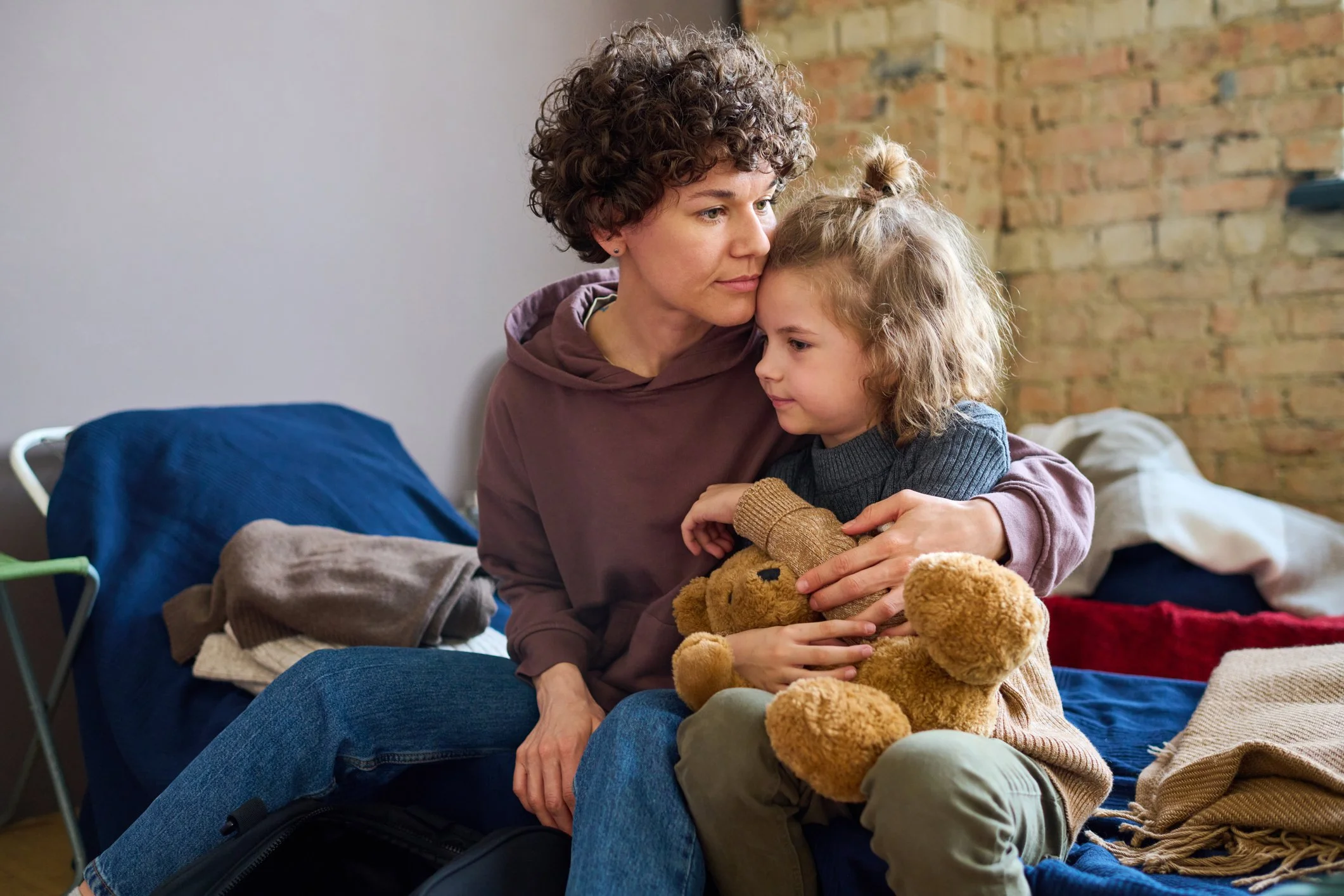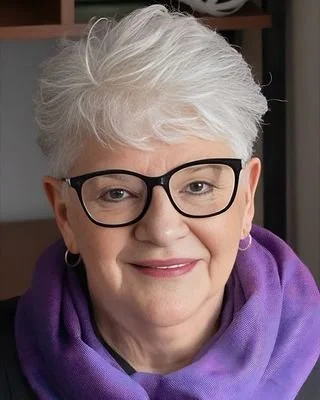
We provide customized, compassionate, and consent-based support for families navigating conflict, disconnection, and unhealthy relationships.
Whether challenges stem from prolonged tension, dysfunctional co-parenting, court involvement, or unresolved trauma, our approach centers each family member’s voice, autonomy, and emotional safety. We tailor our services to meet the unique needs of each family system—fostering healthier communication, rebuilding trust, and supporting sustainable, meaningful relationship repair. Our team is committed to working collaboratively and non-coercively, ensuring that support is rooted in respect, cultural humility, and the pace of each individual’s readiness. Healthy family relationships are not simply about being physically present in the same room - They are about how each Family Member relates to one another and navigates the dynamics of those relationships. Improving the health of these relationships takes time, development of trust, and a deep understanding of each Family Members’ unique experiences and needs.
Our program operates across North America both in-person and virtually.

crossroads family support program
The Crossroads Family Support Program provides structured, trauma-aware support for families navigating conflict, disconnection, or strained relationships. Our work is grounded in a consent-based, child-centred framework that prioritizes emotional safety, thoughtful pacing, and individual readiness. We recognize that trust and communication cannot be rebuilt through pressure or force, and that meaningful, lasting change takes time.
Each family’s process is individualized and collaborative. Rather than imposing predetermined outcomes, we focus on creating the conditions in which healthy, functional relationships can emerge, conditions rooted in safety, respect, and mutual understanding. Our role is to support families in developing communication patterns and relational stability that honour the needs, boundaries, and lived experiences of everyone involved.
Families often come to us during periods of heightened stress, uncertainty, or transition. In these moments, our work is to help restore steadiness and clarity; one step at a time. We do not rush connection or offer quick fixes. Instead, we support parents, children, and extended family members in reducing tension, increasing emotional safety, and rebuilding trust in ways that are developmentally appropriate and sustainable over time.
Our model intentionally bridges the gap between traditional counselling and court-ordered intervention by centring emotional safety, ethical practice, and functional repair. The focus is not compliance—it is relational health.
Children need stability — not sides
We offer a structured, consent-based alternative to traditional “reunification” or forced relationship-repair models. Our approach is trauma-attuned, research-informed, and clinically grounded in attachment theory and family systems work. We support families in developing functional communication, emotional safety, and stability without coercion or mandated emotional outcomes.
Each plan is carefully tailored to the family’s unique circumstances. Progress is guided by readiness, regulation, and relational capacity—not by externally imposed timelines or expectations of closeness. Healthy and sustainable relationships cannot be built through unhealthy or unethical practices.
Why families and professionals choose us
Our approach is grounded in a fundamental truth: family repair cannot be achieved through coercion, pressure, or performance. Sustainable relational change requires safety, trust, and stability first.
Our team brings extensive experience supporting high-conflict and court-involved families. We understand the emotional, legal, and systemic complexities families are navigating, and we know how to help create calm and direction within them. We work collaboratively with families and professionals while remaining firmly grounded in ethical, trauma-aware practice. Every step of our process is intentional, structured, and aligned with best practices that avoid reproducing harm.
We recognize that there are many reasons family dynamics can become strained or unsafe. We also understand that every individual entering our program is carrying stress, fear, and complex emotions. Our team approaches each family with an omni-partial, deeply trauma-attuned, child-focused, and systems-informed lens, with the goal of reducing conflict and strengthening relational capacity where possible.
Working with difference, hesitation, and complexity
Repairing relationships, or supporting families when resistance, hesitation, or refusal is present, requires both compassion and clinical precision. It also requires professionals who understand the relational, developmental, and systemic factors that may lead a family member to withdraw, hesitate, or protect themselves by maintaining distance.
We recognize that some family members may feel urgency to move forward, while others may feel cautious, fearful, or unsure. Many families who reach us have experienced prolonged conflict, agency involvement, or court processes. Despite differing perspectives, we consistently observe a shared desire to protect and support the children. Our role is to guide families through this process with care, integrity, and respect for each person’s experience.
We are here to work with families—not against them.
Our team does not assume that the healthiest outcome is closeness, reconciliation, or increased time together. Instead, we focus on what is functional, safe, ethical, and supportive for each individual within the family system.
Our Framework of Consent and Safety
Our approach is rooted in consent, because healthy relationships—and genuine healing—can only occur where consent, compassion, and safety are present. Force or coercion are fundamentally incompatible with relational repair; they not only undermine trust but can also cause lasting harm to the emotional and developmental well-being of everyone involved.
The Family Support Program is grounded in this principle. We are committed to ensuring that each client feels seen, respected, and safe throughout the process. Building trust and stability within a family system requires a foundation of safety, predictability, and participation—not pressure or persuasion.
No Forced Interactions
Healing and reconciliation happen at a pace that respects each person’s emotional readiness. The attendees of any session are determined through mutual consent among those participating.
No Surprises
All participants are informed in advance about who will be present at each session. There are no unexpected attendees or last-minute changes without consent from all involved.
No Coercion
The program is designed to create an environment where family members feel secure expressing themselves without fear of judgment, retaliation, or pressure to conform.
Many traditional or court-driven approaches to family repair rely on forced interactions or confrontational tactics to accelerate change. However, both research and experience show that these methods are often counterproductive—eroding trust and amplifying distress. Our work is guided by the understanding that authentic healing and sustainable relationship-building require consent, compassion, safety, and support.
Working Respectfully Together
While we understand that frustrations may arise, we ask that our team be treated with respect at all times. It is important to note that we do not work for any one individual, but with and for the family system as a whole. This distinction is essential to the integrity, fairness, and effectiveness of our work.
The pace of progress
Every family’s journey is unique. For co-parents who have been separated from their children for extended periods, the process may feel slow. For others, particularly those who feel uncertain or apprehensive about how their children will respond, the pace may feel fast. The Family Support Program is intentionally structured to hold these differing experiences, ensuring progress is both meaningful and sustainable while respecting emotional readiness. Most importantly, we move at the pace that allows each person or child to feel emotionally safe.
Co-parents are encouraged to recognize that the relationships being shaped during this period will influence not only the present, but their children’s long-term development and future relationships. The choices made now, even in moments of frustration, exhaustion, or uncertainty, carry lasting impact on how children experience trust, safety, and connection across their lives.
This work represents a critical opportunity to shift the trajectory of a family’s dynamics toward healthier, more stable, and more functional outcomes.


Why force “reunification” is harmful?
Forced reunification practices are often based on the mistaken belief that contact alone repairs relationships, that time together will automatically rebuild trust, and that compliance reflects relational health. In reality, these approaches can undermine a child’s sense of safety, reinforce unhealthy power dynamics, and erode trust in helping professionals and systems. Rather than strengthening relationships, they often diminish a family’s capacity for genuine, sustainable connection.
These interventions frequently collapse the natural sequence of healing by bypassing preparation and stabilization and rushing toward reconnection. When readiness is ignored, the result is often increased distress, withdrawal, or regression which, draw families back into cycles of conflict, blame, and institutional involvement.
Consent-based support honours developmental pacing, attachment needs, and each individual’s capacity for emotional closeness. The role of professionals is not to force reconciliation, but to create the conditions where safety makes relationship possible which are conditions defined by transparency, collaboration, and respect for autonomy.
Why healthy and safe interactions with mental health professionals matter?
Healthy, attuned interactions with mental health professionals in childhood matter because they shape how a child comes to understand safety, trust, and their own inner world. When children experience support that respects their autonomy, listens to their voice, and responds to distress with care rather than control, they learn that help is something they can seek, and not something to fear. These early experiences influence how adults later engage with therapy, authority, and relationships more broadly. Conversely, when mental health involvement is coercive, dismissive, or misattuned, it can leave lasting imprints: adults may avoid support, struggle to trust professionals, or internalize shame and self-doubt around their needs.
Healthy experiences with mental health care in childhood do more than support healing in the present. They shape the adults children become. These early experiences lay the groundwork for adults who know how to seek support, hold boundaries, and engage in relationships with a sense of safety, agency, and self-understanding.
Why doing the work can be a game-changer?
Children do not remain children indefinitely. At eighteen, they become adults with full legal and relational autonomy, free to choose how, when, and whether they remain connected to their parents. When unresolved harm, ruptures, or disconnection are carried into that transition, parents no longer have any ability to try to compel the relationship. There is only the opportunity to reflect honestly and do the relational work required to build a healthy relationship.
Relational work is not performative, and it cannot be rushed. It requires accountability, humility, and a willingness to change patterns that may have felt justified or invisible at the time. It requires seeking to understand, empower and support children. When parents engage in this process with care and consistency, something powerful becomes possible: relationships that are chosen, not forced. Parents and adult children can then go on to share decades, often forty years or more, of meaningful, voluntary, and sustainable connection across the child’s adulthood.
Our message to parents is unwavering and straightforward. Do the work. Now, while repair is still possible. Before choice replaces obligation that many harmful systems attempt to impose.
Does our approach work?
Yes. Consent-based, coercion-free work not only produces meaningful and measurable results; it changes the relational landscape for everyone involved. When individuals are not pressured, threatened, or compelled to perform connection, they are able to engage from a place of genuine readiness rather than fear or compliance. This creates conditions where trust can actually form, emotional regulation can stabilize, and communication can become functional rather than defensive.
Over time, this approach reshapes relational patterns. Children learn that their voice and boundaries matter. Parents learn how to tolerate discomfort, repair ruptures, and relate without control. Rather than reinforcing cycles of avoidance, resistance, or escalation, consent-based work supports the development of healthier attachment, clearer boundaries, and more sustainable forms of connection. The result is not just short-term cooperation, but long-term relational capacity. It creates relationships that are safer, more resilient, and more likely to endure beyond the period of professional involvement.

our family support team
Our Family Support Team brings deep specialization and decades of collective experience supporting families in the most complex, high-stakes circumstances. Every professional completes a rigorous 100-hour onboarding and advanced training program prior to working with families. Team members typically bring ten to fifteen years, and often more, of hands-on experience in complex family systems. All counsellors and therapists hold a Master’s degree, and many are dual-registered as social workers and clinical counsellors, allowing them to integrate systemic understanding with skilled therapeutic practice.
We are highly experienced in working with court-involved families and those navigating heightened conflict, including situations involving family violence in all its forms such as physical, verbal, emotional, psychological, financial, sexual, and spiritual abuse, neglect, and coercive control. Our work also extends to families impacted by substance use and misuse, mental illness, poverty, homelessness, neurodiversity, and the intersecting realities of child protection and law enforcement involvement.
This is not a team learning how to navigate complex family dynamics. It is a team shaped by years, often decades, of immersion in this work. We meet families where they are, attune to their unique needs, and apply advanced, trauma-aware skills to support stability, understanding, and relational repair within individuals and across family systems.
Many of our professionals have worked extensively within child protection agencies, law enforcement, and family services. This experience provides a clear, practical understanding of how these systems function and how to engage with them thoughtfully, ethically, and effectively.
Several team members also bring lived experience of having been children in high-conflict family contexts and navigating family law and family services themselves. This perspective deepens our insight and reinforces our commitment to protecting childhood. We believe children have the right to safety, voice, and connection, and that they should never carry the burden of repairing relationships on their own. Responsibility for change rests with the adults and systems surrounding them, who must work intentionally to create the conditions for compassion, trust, and emotional safety.
All team members are affiliated with the Association of Family and Conciliation Courts, Hear the Child Society, and the Canadian Coalition for the Rights of Children. Whether collaborating with legal and mental health professionals or working directly with families, we provide steady, informed, and compassionate support in even the most challenging family law and family services matters.
Melissa
MA, MAMFT, RCC
Darlene
BSW, MA, RSW, RCC, ACS
Randeep
BSW, RSW
Talia
C.CFM, C.FRM, CIFM, PON
Amanjot
MSW, RSW
Neale
BSW, MSW, RSW
Marianne
MA, CCC
Warren
MACP, RCC, CCC, RSW
Michelle
MA, RCC
Michele
BSW, MSW, RSW
Amanda
MACP, RCC, CCC
Lurline
MA, RCC-ACS, CPT, BCRPT-S
Domonique
MA, RCC
Chaowen
MSEd, RCC
Colleen
MACP, RCC
Bill
BSW, MSW, RSW
Rana
MA, CCC, ACTA
Finnegan
Darcie
MC, CCC


mandatory onboarding process
Step Two: Intake Session
We require a mandatory intake session (separately) for each parent. Intake sessions are $249 per hour, and there is one (1) intake per parent. They are one (1) hour in length and completed virtually/online via Zoom.
Our team provides each parent with a digital invoice in advance, which can be easily paid online. Each co-parent is responsible for paying their intake session fee in advance, and they can reimburse one another as necessary.
Step Three: Cost-sharing disclosure
The co-parents provide documentation of an agreed-upon or court-ordered split of costs for which each is responsible. From this point forward, our team can split costs according to the agreed-upon or court-ordered split.
This documentation will be provided within five (5) business days of the request.
Step Four: Onboarding fee
The $999 plus GST mandatory, non-refundable onboarding fee is due following the intake sessions.
Our team provides a digital invoice in advance to each parent, which is easily paid online. This can be split per the co-parents’ agreed-upon or court-ordered split.
Step Five: Document Disclosure
Our team may request that you disclose specific documents. If requested, we expect them to be provided within the timeline we have asked for, and in the event a timeline is not provided within five (5) business days of the request.
We frequently work with families who have had court involvement, law enforcement involvement, and/or child protection agency involvement. We will request document disclosure of the following:
All orders by way of court (this also includes consent orders)
All awards by way of arbitration
All determinations by way of a parenting coordinator
All mediation summary reports
All formal diagnoses of the children
All s. 211 reports conducted
All s. 211 report updates conducted
All Hear the Child reports conducted
All Voice of the Child reports conducted
All IEPs for the children
All occupational therapy assessments conducted
All written recommendations by way of Child Protection Agency
All report/file closure letters by way of Child Protection Agency
All written recommendations by way of Law Enforcement Agency
All written recommendations by way of indigenous elders
Step Six: Professional Disclosure
We request specific information regarding professionals who have worked with the family so that our team has a holistic view of what has led the family to us and how we can support the family.
The Co-Parents will provide our team with the following information within five (5) business days of our team requesting it or by date/time that our team otherwise directs:
Any mental health professionals who have worked with the Child(ren) in the past, and/or are working with them currently - Full name, professional designation, contact number, contact email
Any medical professionals who have worked with the Child(ren) in the past, and/or are working with the Child(ren) currently - Full name, professional designation, contact number, contact email
Any conflict dispute resolution professionals (lawyers, elders, pastors, counsellors, parenting coordinators, mediators, arbitrators etc.) that have worked with the Co-Parents to resolve co-parenting matters - Full name, professional designation, contact number, contact email
Any current co-parenting counsellors that are working with the Co-Parents individually or collaboratively - Full name, professional designation, contact number, contact email
Each Co-Parent will provide a list of the aforementioned professionals digitally via email to familysupport@theco-lab.co or a link to a Google Drive where they are housed for download by our team.
Step Seven: Consent to release information
Our team requires parents to sign a consent to release information form for each child so that we can freely connect with and support children with their past and current professionals. It is not in children’s best interests to have many professionals supporting their family who cannot speak to one another. It is also important that if our team is supporting the co-parents to improve their co-parenting partnership, that we have visibility to the Child(ren)’s circumstances, support and needs. This is to support resolution and not for litigative purposes
Step Eight: Service agreement
Our team provides a Crossroads Family Support Program Service Agreement that each co-parent must sign before proceeding. The Agreement details how the service will be provided and the expectations of all involved.
It is sent to the co-parents digitally and is signed electronically.
Step One: Inquiry Form
Each co-parent hoping to enter our Crossroads Family Support Program must complete an inquiry form. The inquiry form provides us with an overview of basic information for your family. It can be found here: https://forms.gle/BqbNaQDUTwFMsqDk8
Step Seven: Reserve Fund
Each family must provide a reserve fund of $2999. These funds are used to pay professional hours and/or administrative hours outside of the sessions, and include 2 hours of administrative support per month.
Our team provides a digital invoice in advance to each parent, which is easily paid online. This can be split per the co-parents’ agreed-upon or court-ordered split.
The reserve fund is not used to pay for sessions unless a co-parent refuses to pay in advance. It will be drawn from for administrative time/costs and non-session professional time/costs. It will also be utilized if either party stops payment, but there are outstanding professional tasks that must be completed, such as writing a closing report. The reserve fund will not be used for sessions otherwise.
Each time the reserve fund reduces to $1499, the co-parents are expected to replenish it to $2999 within seven (7) business days. Our team provides each Co-Parent with a digital invoice in advance, which can be easily paid online. The amount can be split per the co-parents’ agreed-upon or court-ordered split.
Step Eight: Professional Assignment
We will select and suggest the appropriate professionals on our team to support your family. You are welcome to suggest who you are interested in working with; however, we solely maintain the ability to advise who is available/able to support them.


additional details about the family support program
Administrative support
Our team administration is highly trained to support the families and circumstances of those directed to our services.
There is a mandatory monthly administrative fee of $299 per family in our Crossroads Family Support Program. This fee is charged on a subscription model with each parent’s credit card on file (and can be split by the percentage each parent is to pay for our services). If administrative time dedicated to your file exceeds two (2) hours per month, you will be charged $149 per hour for the overage.
The Co-Parents will be charged the above rates for any time our team members spend meeting with the Co-Parents, phone consultations, email correspondence, reviewing and drafting documents, consultation with our team members or other professionals, travel time, reading, writing and editing any reports or updates about your file, and any other professional time spent on your file.
Administration activities typically completed by our coordinators include but are not limited to scheduling matters (including rescheduling, and cancellations), coordination of appointments for clients and team members, billing, and creation of receipts and statements for finances including any clarification or requests that require admin time, reading and replying to emails for administrative purposes, document creation and production for any updates/reports from our team, and any other administrative tasks relating to your family. Incidental fees may be billed, including photocopying, faxing, and postage etc.
Professional support outside of sessions
Our professionals charge their time at a $249 hourly rate outside of sessions if they are required to provide additional support, connect internally to support the child(ren) or family. An example would be a counsellor attending an IEP meeting for a child, or meeting with the co-parent’s parenting coordinator.
CFS sessions
Session fees are $249 per hour. Reduced rates will be considered; however, they are not guaranteed. Our team appoints the professional(s) most appropriate for the co-parents, your child(ren), and the family’s circumstances and needs.
We can split session fees by the applicable cost-sharing split that co-parents have in place. Sessions are paid in advance of occurring. Our team provides a digital invoice to each co-parent, which is easily paid online.


























